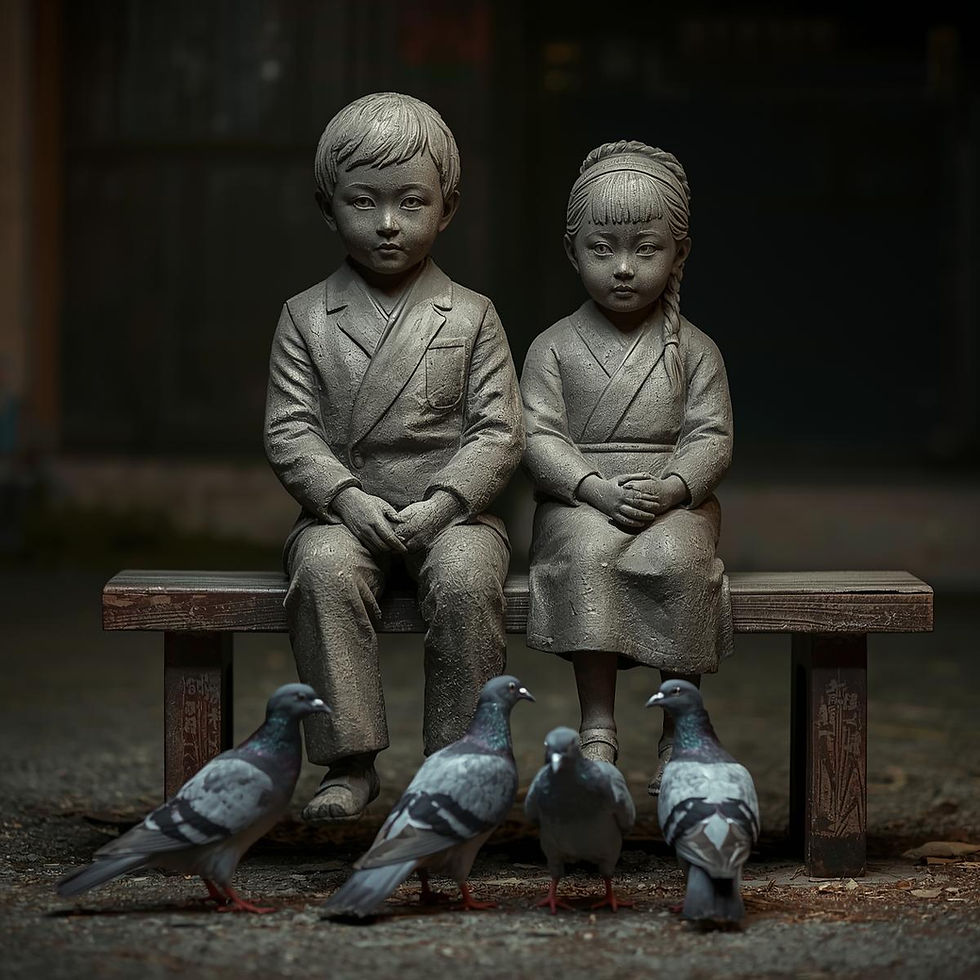The Spirit Walk
- Jim Parker

- Dec 1, 2024
- 4 min read
Updated: Dec 11, 2024

One of the paradoxes of this so-called 'social' media age is that the more ways we have of talking to, or more often 'at', each other, the less we are communicating in any real sense. That was a lesson brought home to me during a recent journey, hiking through rural Japan.
In extolling the benefits of time spent in nature talking to strangers without digital devices, I know I risk being labelled a luddite. But it really was striking how much unplugging from media noise seemed to create a refreshing sense of time, space and real connection with others.
The conversations I had with those I met along the seven-day trail were slower, more measured, respectful and more deeply engaging than the frequently rushed, superficial, tribal and performative connections of social media. Perhaps it is the collegiate nature of bush-walking , but there was always a sense of our shared humanity beyond whatever differences we had.
While my walking holiday coincided with the divisive US presidential election, it was the backdrop of 900-year Japanese cedars and ancient shrines that spoke more loudly and more vividly to me than the news of shouty and fevered jostling for power in Washington.

Indeed, the quiet relief I felt at getting away from the insanity of the news cycle appeared to be universally shared among the walkers I encountered - a cross-section of people from the US, the UK, France, Germany, South America, Australia, Singapore, Malaysia, Taiwan and China.
Obviously this was not a representative sample. These were mostly tertiary educated middle class people, keen for a break from the noise and interruptions of city life and interested in an ancient culture that was still safely set within a 21st century all-mod-cons economy. Even so, the open, positive discussions over dinners after each day on the trail did not point to a world on the brink.
The Chinese walkers I met were cosmpolitan, fluent in English and clearly well-travelled. The Americans for the most part were embarrassed about the mess country is in and keen to understand the world from a perspective other than the customary, and rapidly fading, unipolar one.
Overall, it was hard not to detect a conviction abroad that the four-decade period of US cultural, economic and political hegemony really is over. This is accompanied by a sense of urgency about acting on climate change and remaking global institutions. The difference now is few expect the US to take the lead anymore. If anything, Washington serves as a warning about what not to do.
Yes, many in the Anglosphere, particularly Australia, are finding it hard to put the necessary distance between themselves and the mortally wounded hegemon. We still unthinkingly ape their manufactured culture wars and assume (wrongly) that their security apparatus guarantees our safety. But it is hard to imagine that younger generations will put as much faith in Washington as we did.
For now, Trump's return to power suggests the shift to both US isolationism and an ugly reactionary nationalism represented by his first term was not a flash in the pan. America is still exorcising demons unleased by 40 years of neoliberalism, the hollowing out of its industrial base, 9/11 and the subsequent ruinous wars launched in its wake, as well as bitter division between its wealthy, educated coastal elites and the people in the centre of the country left behind by globalisation.
Backing Trump are an unlikely coalition of tech billionaires, hedge fund capitalists, fossil fuel interests, fundamentalist Christian nationalists, Russian sympathisers and extreme libertarians who all seem set on capturing and remaking the US state according to their disparate agendas.
Suffice to say, their deformed view of the world is not one I share or wish to be part of. But my trip gave me a sense that many people around the world are feeling like I do.
We are at an inflexion point in history. The events of the first decade of the 21st century, culminating in the global financial crisis, brought to a close a 40-year period of neoliberalism.
While this era brought some good arising from free trade, liberalised markets, open borders and raising living standards in what once was the third world, it also damaged social safety nets, sparked asset price inflation and widened the disparity of wealth and incomes within advanced economies. The resulting resentment explains the populist backlash of Brexit, Trump and the rise of the far right.
The US, where the social safety net was thinnest, has experienced the greatest backlash, although the people voting for Trump have yet to wake up that his backers would screw them even harder. Tariffs will drive up prices, public health and education will be decimated, democratic institutions will be further undermined, and a surge in investment in fossil fuels will leave the US lagging China in making the necessary energy transition on the back of innovation and public investment.
Like many others, I am worried. The end of a unipolar world threatens a period of severe geopolitical and economic instability. After several decades of neoliberalism, which in turn replaced three decades of the Keynesian post WWII mixed economy, we are at an interregnum New ideas, new leaders and new institutions - both domestic and international are required.
To avoid a sense of despair and hopelessness, we need to be talking with each other, not at each other. And we need to do re-learn how to communicate beyond the algorithmically-driven platforms controlled by billionaire libertarians more interested in colonising other planets than saving this one.
Hope is not dead.





Comments